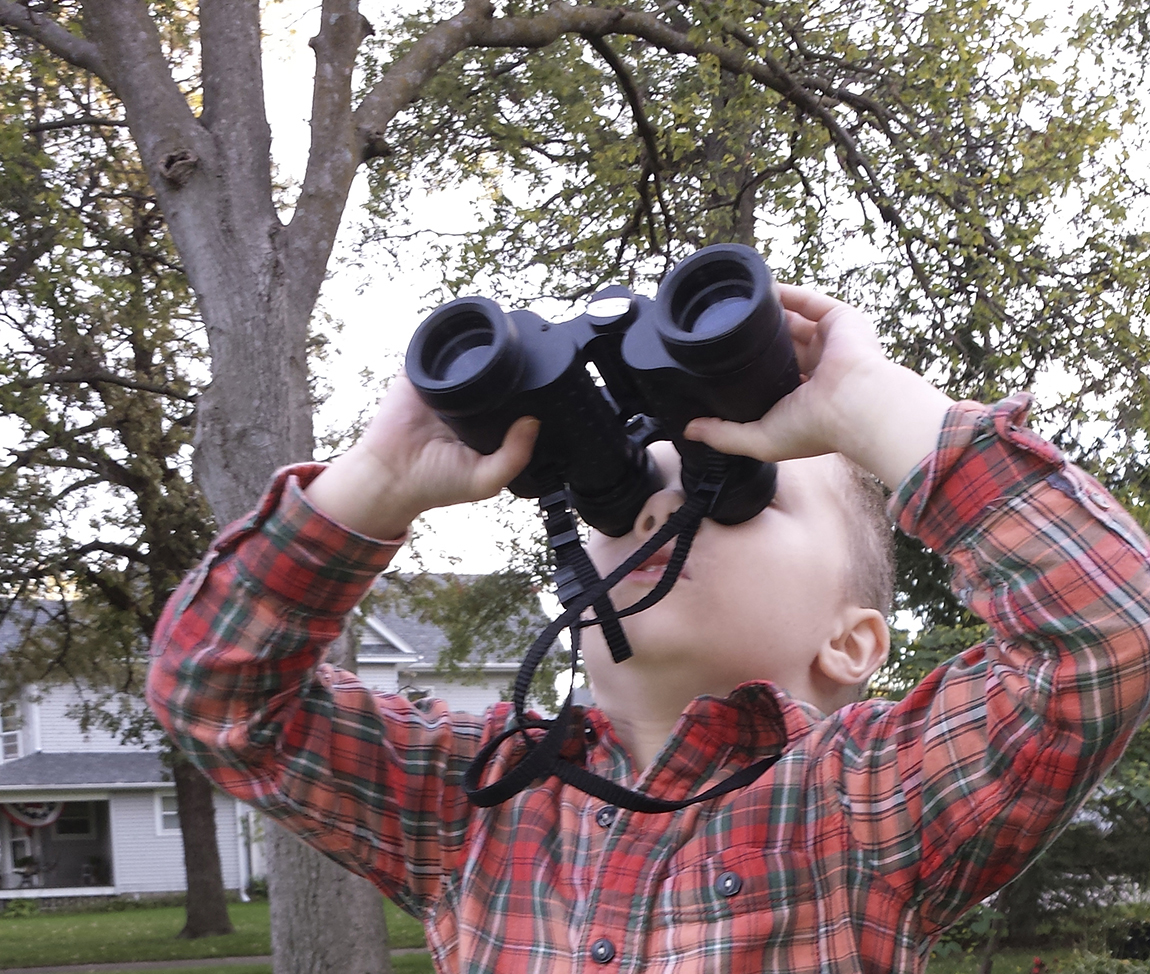
By Leanne Manning, Extension Educator
Have you ever given thought to all the benefits to children of letting them explore the natural world? When they are outdoors and climbing trees, skipping stones, scaling rocks or rolling down the hill, they are getting much needed physical activity which can help curb childhood obesity.
The visual beauty of nature also has a calming effect on children. They can relax, breathe deeply and reflect on their surroundings. Think about when you were young and you laid down in the grass and looked for shapes among the clouds in the sky and how relaxing that experience was.
Children can also use their senses to explore nature. Ask them, “What do you hear as you stand here under the trees? What do you smell or what does the branch of the evergreen tree smell like?” Try taking paint chips to the outdoors and give them to children to go and find something in nature that matches the color of the paint chip. Use the sense of touch to feel the texture on a plant’s leaves, the bark on the tree, the surface of a rock or the roughness of a pine cone.
By having children care for a plant or garden they are learning to be responsible. If they don’t water a plant it might suffer or die. The same goes for caring for a pet. This helps children develop empathy as they make the connection between their timely and responsive caregiving to their pet’s or plant’s well-being.
Give children tools to further their nature exploration. Some ideas include: collection boxes, small hand tools like shovels or trowels, packets of seeds to plant, a bucket or tub for water play, magnifying glasses, binoculars, pencils, crayons and paper. Having nature-related storybooks will also encourage children to explore outdoors.
Adults can help children explore nature by planning developmentally appropriate activities and by taking children on trips to parks or other nature areas. Adults can take infants outside and talk to them about what they are seeing or hearing, for example, “Do you hear that cow mooing? Cows use mooing to talk to each other.”
When children get older, ask them higher level questions about cows such as, “Where do cows live? What types of food do cows eat?” It is also important to let children explore on their own. When given the time to freely experience nature, they will build their own relationship and sense of wonder with nature.
Source: Penn State Extension publication, “Children and Nature: Are We Supporting the Connection?”